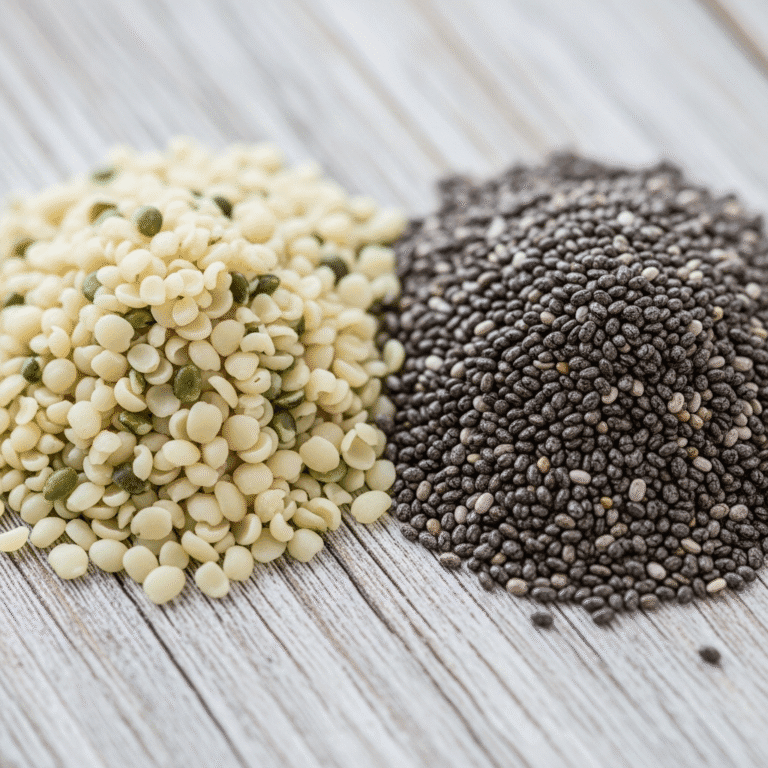FREE SHIPPING OVER $50
Thyroid Breakthrough: Naturally END Weight Gain & Hair Loss (Your Guide to a Revived Metabolism)

Have you been feeling unusually tired, even after a full night’s sleep? Are you battling stubborn weight gain that just won’t budge, no matter how hard you try? Or perhaps you’ve noticed more hair on your brush or in the shower drain than ever before? If these symptoms sound all too familiar, your thyroid might be trying to tell you something.
Your thyroid is a small, butterfly-shaped gland located in your neck, but it plays an enormous role in your overall health. It’s essentially the master regulator of your metabolism, dictating how your body uses energy. When your thyroid function is sluggish (a condition often called hypothyroidism), it can throw your entire system out of whack, leading to a cascade of unwelcome symptoms, including the dreaded weight gain and frustrating hair loss.
Understanding Your Thyroid: The Master of Metabolism
Imagine your body as a finely tuned engine. Your thyroid gland acts like the accelerator pedal, producing hormones (primarily T3 and T4) that control practically every cell, tissue, and organ. These hormones regulate:
- Metabolism: How quickly your body converts food into energy. A slow thyroid means a slow metabolism, making weight gain easy and weight loss incredibly difficult.
- Body Temperature: Feeling cold all the time? Your thyroid might be struggling.
- Heart Rate and Blood Pressure: Directly influenced by thyroid hormones.
- Energy Levels: Fatigue is a hallmark symptom of an underactive thyroid.
- Hair and Skin Health: Thyroid hormones impact hair growth cycles and skin cell turnover.
- Mood and Cognitive Function: Brain fog, memory issues, and even mood swings can be linked to thyroid imbalance.
When your thyroid isn’t performing optimally, it can lead to a state of low energy where your body conserves calories, making fat storage more likely and hindering your ability to burn fat efficiently. This directly contributes to weight gain. Furthermore, thyroid hormones are crucial for the development and maintenance of hair follicles. When these hormones are low, hair follicles can go into a resting phase too early, leading to thinning hair and significant hair loss.
Your Natural Thyroid Breakthrough: Strategies to Revive Your Metabolism
While medical intervention is vital for diagnosed thyroid conditions, there’s a tremendous amount you can do naturally to support your thyroid function, calm inflammation, and give your body the resources it needs to thrive. These strategies are your guide to a revived metabolism, helping you end weight gain and hair loss.
1. Nourish Your Thyroid with Targeted Nutrition
What you eat directly impacts your thyroid’s ability to produce hormones and function optimally. Focusing on nutrient-dense foods and being mindful of certain triggers can make a world of difference.
Key Nutrients Your Thyroid Craves:
- Iodine: Essential building block for thyroid hormones. Found in seaweed (kelp, nori, spirulina – but be cautious of excessive amounts), fish, shellfish, dairy, and iodized salt. Balance is key; both too little and too much iodine can be problematic.
- Selenium: Critical for converting inactive thyroid hormone (T4) into the active form (T3). Also a powerful antioxidant for thyroid health. Brazil nuts are a fantastic source (just a couple a day!), as are fish, shellfish, and eggs.
- Zinc: Involved in thyroid hormone production and conversion. Found in oysters, beef, chicken, pumpkin seeds, and legumes.
- Iron: Necessary for the enzyme that produces thyroid hormones. Red meat, lentils, spinach, and fortified cereals are good sources. Iron deficiency can mimic or worsen thyroid symptoms, including hair loss.
- B Vitamins: Especially B12, important for energy metabolism and nerve function, often low in individuals with low thyroid function. Found in meats, eggs, dairy, and fortified cereals.
- Vitamin D: Many people with thyroid issues are deficient. Crucial for immune function and overall health. Get it from sunlight, fatty fish, and fortified foods.
Foods to Be Mindful Of:
- Processed Foods: High in unhealthy fats, sugar, and artificial ingredients that contribute to inflammation and can hinder overall metabolism.
- Excessive Raw Goitrogens: Foods like raw broccoli, cabbage, kale, and cauliflower contain compounds (goitrogens) that can interfere with thyroid function if consumed in very large, raw quantities, especially if iodine intake is low. Cooking them typically deactivates these compounds. Moderate consumption is generally fine and healthy.
- Soy: Some studies suggest that unfermented soy products in very high amounts might interfere with thyroid hormone absorption, particularly if iodine intake is low or if you’re taking thyroid medication. Discuss with your doctor if you consume a lot of soy.
- Gluten: For individuals with Hashimoto’s thyroiditis (an autoimmune thyroid condition), removing gluten might help reduce inflammation and improve symptoms, though this is not universally applicable and should be discussed with a healthcare professional.
2. Master Stress Management for Hormonal Harmony
Chronic stress is a silent enemy of your thyroid. When you’re constantly stressed, your body pumps out cortisol, the “stress hormone.” High cortisol levels can negatively impact thyroid function by interfering with the conversion of T4 to the active T3 hormone, further slowing your metabolism and worsening symptoms like weight gain and fatigue.
- How to naturally support:
- Mindfulness & Meditation: Even 10-15 minutes a day can make a difference.
- Deep Breathing Exercises: Simple techniques to calm your nervous system.
- Yoga or Tai Chi: Gentle movements combined with breath work are excellent for stress reduction.
- Nature Time: Spending time outdoors has proven stress-reducing benefits.
- Prioritize Sleep: Lack of sleep is a major stressor on your body.
3. Cultivate a Healthy Gut (The Gut-Thyroid Connection)
Your gut health is intimately linked to your thyroid function. A healthy gut is essential for nutrient absorption, immune system regulation, and even the conversion of thyroid hormones. An imbalanced gut microbiome or a “leaky gut” can contribute to inflammation and autoimmune responses that can impact your thyroid.
- How to naturally support:
- Probiotic-Rich Foods: Fermented foods like yogurt, kefir, sauerkraut, and kimchi introduce beneficial bacteria to your gut.
- Prebiotic Foods: These feed good gut bacteria. Think garlic, onions, asparagus, and bananas.
- Fiber-Rich Diet: Fruits, vegetables, and whole grains promote regular bowel movements and a diverse microbiome.
- Identify Food Sensitivities: If certain foods consistently cause digestive upset, they might be contributing to gut inflammation.
4. Minimize Environmental Toxin Exposure
We live in a world filled with potential endocrine disruptors – chemicals that can interfere with your hormonal system, including your thyroid. These can be found in plastics, pesticides, and some personal care products.
- How to naturally support:
- Choose Whole, Organic Foods: Reduce exposure to pesticides and herbicides.
- Use Glass or Stainless Steel: Avoid heating food in plastic containers.
- Filter Your Water: Reduce exposure to chlorine and fluoride, which some believe can impact thyroid function.
- Opt for Natural Personal Care Products: Look for products free of phthalates, parabens, and other suspect chemicals.
5. Embrace Consistent Movement & Quality Sleep
While these are general health pillars, their impact on your thyroid and metabolism is significant.
- Movement: Regular, moderate exercise (like walking, swimming, or light strength training) boosts your metabolism, improves energy levels, and helps with weight management. It also reduces stress and improves circulation, benefiting your thyroid.
- Sleep: Quality sleep is non-negotiable for hormonal balance. Poor sleep elevates cortisol and can disrupt the delicate balance of thyroid hormones, contributing to fatigue and difficulty with weight loss. Aim for 7-9 hours of restful sleep per night.
Reversing Weight Gain & Hair Loss: Your Revived Metabolism
By implementing these natural strategies, you’re not just hoping for the best; you’re actively creating an environment where your thyroid can function more effectively, leading directly to improvements in your most challenging symptoms:
- Ending Weight Gain: A supported thyroid means a more efficient metabolism. Your body becomes better at burning calories for energy instead of storing them as fat. This is the breakthrough many are seeking for stubborn weight.
- Stopping Hair Loss: When thyroid hormones are balanced and your body is getting the essential nutrients it needs, hair follicles can return to their healthy growth cycles. You’ll likely notice less shedding and potentially thicker, healthier hair.
- Overall Vitality: Beyond these specific symptoms, you’ll experience increased energy, clearer thinking, improved mood, and a general sense of well-being that reflects your revived metabolism.
Conclusion
Dealing with a sluggish thyroid can feel overwhelming, but it doesn’t have to define your health journey. The good news is that you have the power to make significant changes naturally to support your thyroid function.
By focusing on nutrient-rich nutrition, mastering stress, nurturing your gut, minimizing toxin exposure, and prioritizing movement and sleep, you’re giving your body the best possible chance to truly thrive. This holistic approach can help you end weight gain and hair loss for good, and guide you towards a truly revived metabolism. Remember, always consult your healthcare professional for diagnosis and personalized medical advice.
Related Articles
- Ozempic Penis: The SHOCKING Truth Behind Men’s Reports (Experts Speak Out)
- Ozempic-Level Weight Loss: 8 FREE Diet Hacks That CRUSH Cravings & Keep You Full (Doctor-Approved!)
- Ozempic-Level Results? Unlock Your Body’s Own Fat-Burning Hormones By Eating Smarter (Science-Backed!)
- Ozempic Won’t Fix This: Scientists Just Discovered the REAL Reason For Stubborn Belly Fat
- Is Psyllium Husk the Safer and More Affordable Ozempic Alternative No One Talks About?







